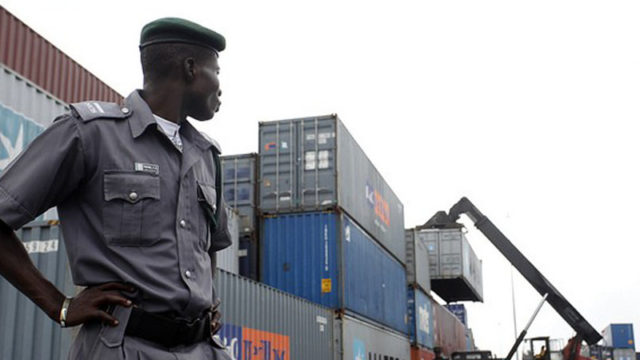The Nigeria Customs Service (NCS) has denied reports that it had agreed to the Central Bank of Nigeria (CBN)’s benchmarking policy on e-valuator and e-invoicing.
National Public Relations Officer, Nigeria Customs Service (NCS), Timi Bomodi, insisted that the Service would rather align with the World Trade Organisation (WTO) Agreement on Customs Valuation (ACV) as it aims for a fair, uniform and neutral system for the valuation of goods for customs purposes, unlike the CBN’s benchmarking that negate the aim of the ACV and likely to result in disputes, delays and uncertainties.
“It has come to our attention that there are reports, suggesting the Nigeria Customs Service (NCS) has acquiesced to the introduction of the e-valuator and e-invoicing for import and export businesses in Nigeria by Central Bank of Nigeria (CBN). We wish to state that this is incorrect. The Service still stands by its earlier submissions on the matter, as was clearly communicated to the House of Representatives Joint Committee on Customs and Excise, Banking and Currencies on March 3rd, 2022.
“The practice world over is to domicile adjudication on Customs values for import and export within the Customs administration of every country. The NCS, undoubtedly, is alive to its statutory functions and has a vibrant valuation unit under the Tariff and Trade Department whose roles among others includes the proper interpretation of WCO/WTO rules and agreements concerning the valuation of goods,” Bomodi said.
He added being a member of the World Customs Organization (WCO), World Trade Organization (WTO) and also signatory to international trade treaties, including Article VII of the General Agreement on Tariffs and Trade, Nigeria is constrained to abide by the principles contained therein.
He pointed out that the Article VII stipulates that the value for customs purposes of imported and exported goods should be based on the actual value paid or payable for them.
“This is commonly referred to as transaction value. This agreement also prescribes five other methods for arriving at Customs value where the transaction value is unacceptable. They are transaction value of identical goods, the transaction value of similar goods, Deductive value method, Computed value method, and Fallback method, applied sequentially.
The Nation.

